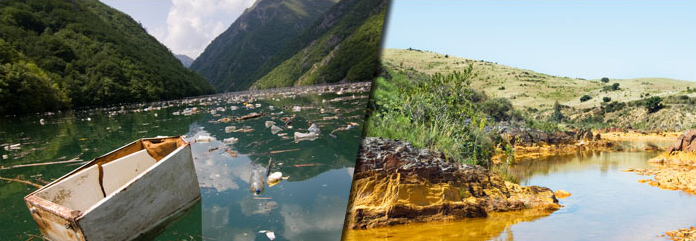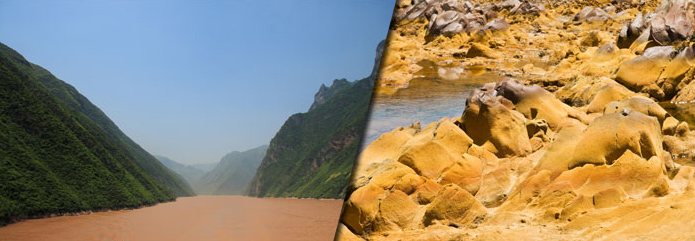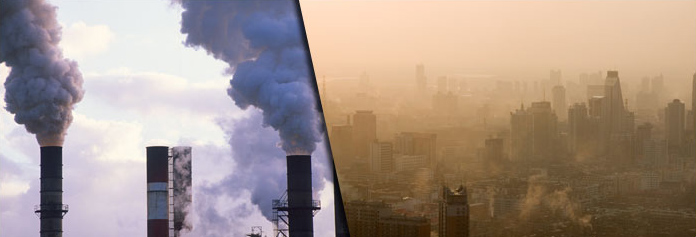Global pollution disasters
Industries don’t always deal with their waste problems like they should. This could be for a few reasons:
-
They may not realise how dangerous their waste is
-
Getting rid of the waste might be very expensive
To solve these problems, some companies store their waste. The problem with storing waste is that it creates problems for the future. You can find examples of this kind of problem in most countries.
Wales, like other developed countries, has strict environmental laws so industries have to carefully manage their waste. Even though there is less risk of environmental disaster, the old coal and tin mining industry still causes problems.
Countries like Nigeria, Brazil and China are growing economies. Environmental protection laws are not as strict so industries don’t carefully manage their waste. Because they do not get rid of their waste properly, they are at risk of creating local and even international environmental disasters.

Pollution around the world
Hazardous waste can be liquid, airborne or solid.
River pollution

Air pollution
Nasty chemicals released through chimneys are pushed around by winds for many miles and travel high up into the atmosphere.

Air Pollution
You often see or read about waste-related disasters on the news. Disasters like this don't stay on the news long as there's always a newer story to be told. Even though the disaster isn't in the news, it doesn't mean the problem has gone away. The truth is that these disasters can cause tragic health problems for generations.
Waste in rivers has only one way to go - downstream.
Use the arrows at the bottom to search the map and click on the flags to discover just a few of the recent river pollution disasters that made the news.
Old and new ways to measure water pollution!
Water can be polluted with lots of different chemical and organic stuff that really shouldn't be in it. So, how do we measure how much pollution is in it?
Chemists can test the water and measure the precise concentrations of chemicals. When measuring organic pollution they measure much oxygen is being taking from the water for organic waste to decompose. This is called the BOD (Biological Oxygen Demand).
A high BOD means there may be not enough oxygen left for fish and other animals to live. Some species can only survive in very clean water so if they are present, it means that the river isn't polluted. At the dirty end of the scale, a few animals like some species of worms survive in polluted water, so if only these are found, it must be badly polluted.
It's possible to find out how far sewage was being carried in rivers and out to sea by measuring the concentrations of tomato pips in the underwater muds and sands.
We cannot digest tomato seeds so they flow from the toilet through a sewage treatment works and into river or sea water. The tomato seeds grow new plants in the dung of the animals that eat them! Tomato seeds were discovered out in the middle of the North Sea!


